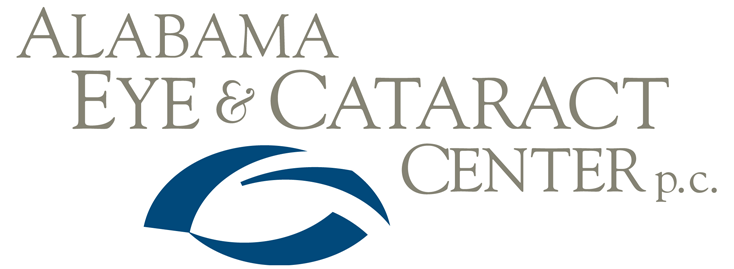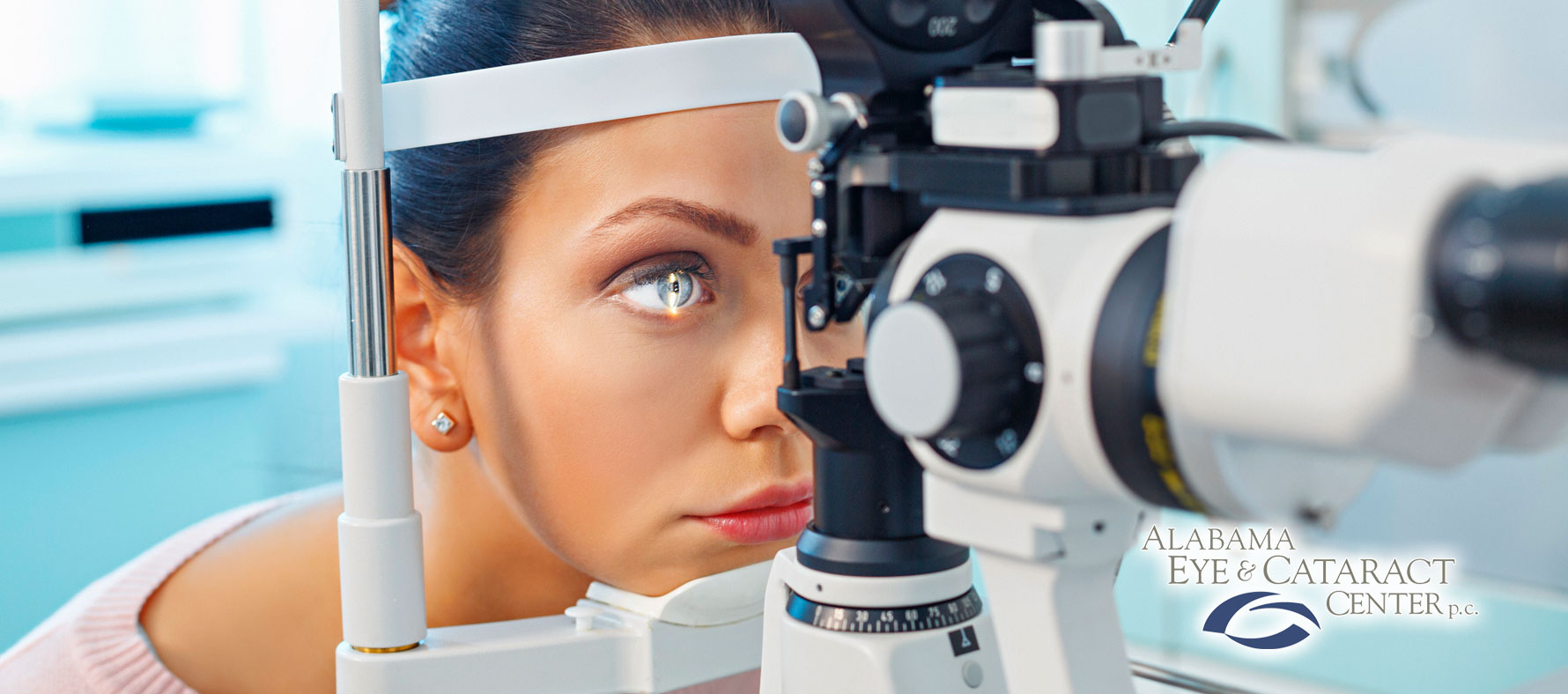As part of the full range of eye care services we offer at Alabama Eye & Cataract Center, P.C. we are happy to provide routine eye exams for eye health, vision correction for eyeglasses and contacts, as well as cataract eye exams, diabetic eye exams and glaucoma eye exams and screenings. We strongly recommend that all patients have routine eye examinations on a regular basis.
The frequency of your eye examinations depends on many factors including your age, general health, family history of eye problems and history of treatment for any eye conditions or diseases in the past. When you schedule a general eye examination at Alabama Eye & Cataract Center, P.C. it will consist of complete testing of your vision and a comprehensive medical evaluation of the health of your eyes.
A complete medical history will be taken including your general health, any previous eye problems or conditions and a review of any problems that you might be experiencing with your vision or your eyes. If you have any chronic health problems it is important that you share this. Please be sure to tell us if, a) you are currently a smoker or have even smoked in the past as today we know that many eye problems, conditions and diseases can be accelerated by smoking b) about any medications you are taking, even over the counter medications or eye drops and c) your family history of eye and health problems such as diabetes and high blood pressure. In particular, we should also be aware of any eye problems that your family members may have experienced such as glaucoma, cataracts or macular degeneration as they tend to run in families.
Your eye exam will begin with an assessment of your vision, or visual acuity with your current eyeglasses or contact lenses whereby you will be asked to read a chart projected across the examination room that consists of numbers and letters that get progressively smaller and more difficult to read as you move down the chart. Using an instrument called a Phoroptor, a refraction will be performed to determine the most accurate eyeglass or contact lens prescription necessary to correct your vision. Your eye muscle movements and coordination will be evaluated by asking you to look in different gaze positions. The reaction of your pupils to light will be evaluated to test the health of the optic nerve. Your eyes will be examined through a Slit Lamp Biomicroscope to evaluate the health of your eyelids, eye lashes, eyelid margins and tear film as well as the sclera, or “white of your eye”, and the cornea, or clear dome shaped tissue in front of your pupil. By focusing the slit lamp through the pupil or the dark center of the iris, the colored part of the eye, your doctor will be able to examine the health of the crystalline lens, which is where cataracts form. In order to check for one of the signs of glaucoma, eye drops will be placed in your eyes so that the Intraocular Pressure (IOP) can be measured while you are behind the Slit Lamp, or with a TonoPen, which is a handheld instrument. This is an important diagnostic test for glaucoma. The next step is to examine the “back of the eye” by placing eye in your eyes in order to dilate or widen your pupils. It usually takes between 15 to 30 minutes for the eye drops to fully dilate your pupil while you relax in one of our comfortable waiting areas. The fully widened pupil may make you somewhat sensitive to light and may also blur your vision, especially your near vision, for a few hours after your eye examination. If you have not had a dilated exam in the past, it is a good idea to have a driver on your exam day. It is important to bring a good pair of sunglasses with you in order to lessen your light sensitivity.
If you are in overall good health, and to the best of your knowledge you have not been diagnosed with any eye health problems or eye diseases, scheduling an eye examination every two years is usually sufficient. It is important if you have any family member who has been told they have glaucoma, macular degeneration (AMD), or if you are diabetic, that you are examined at least once a year, or as directed by your eye doctor or family doctor. A number of eye problems and eye conditions become more frequent with age. In particular, cataract formation and other age related macular problems increase in frequency for patients over 55-60 years of age and even healthy people should consider scheduling a routine eye exam each year if they fall into this age group. Anyone over the age of 40 should have an eye exam and glaucoma testing annually and anyone over 50 with a family history of macular degeneration should also be examined annually.

